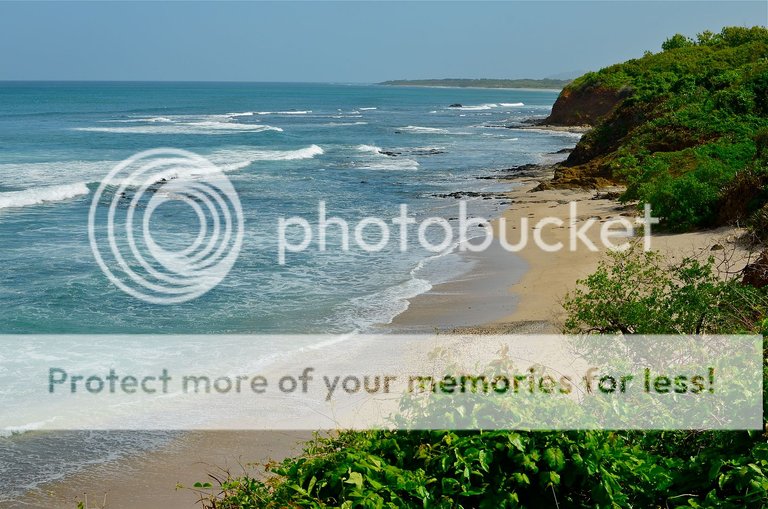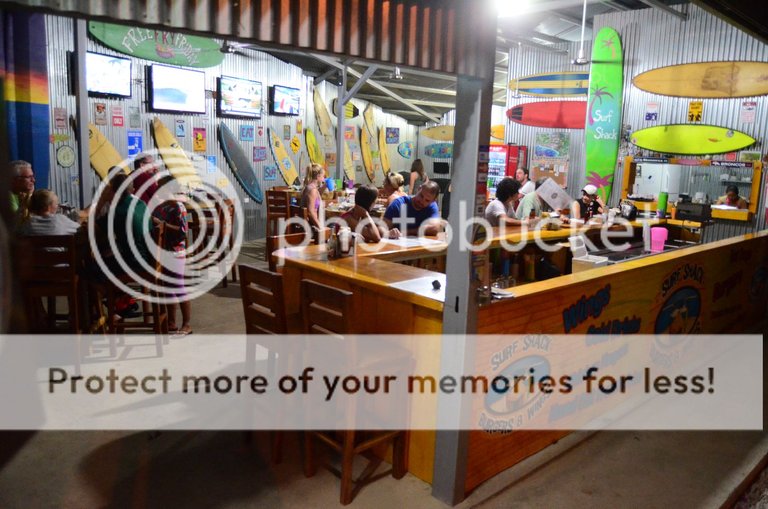One of the most common questions I get when talking to friends in the states that just found out that I moved my family to Costa Rica is, "What do you do for work?". The hard but true answer is that I'm trying to figure it out. We have been here a year and a half and are just now getting it sorted. We've had so many ideas that for one reason or another never panned out. The point of this post is to help those thinking of coming here to figure things out sooner, so they don't run out of money, like many people do.
I thought it would be easier to figure out than it is. The main problem for us is that we are not legal residents and as such, can not get a work permit. Plus, even if I start or buy a business, I cant work in it. In that vein, I have always been a "go get a job" type of person, not a go create a job type. If Obama was president of Costa Rica, then I could get a job no worries (wink wink), but as things stand, I have to change my attitude and my way of thinking. I have to be a creator. I have to be creative. I have to become an entrepreneur.
Before moving here, the first step is to ask yourself is if you are the type of person that can create a living for yourself with your own ingenuity or are you more comfortable working for someone else. If you are the latter, don't move down here. First of all there are no jobs for you. Second of all, there are no jobs for you. Third, even if there were jobs, you could not support your family with the pay, at least not a living like you are used to.
My background is in financial services, which isn't super useful here. Until this week on Steemit, I have never earned a single dollar on the internet. If you have a way to make a living on-line, then you are golden. If you are a skilled laborer (builder, electrician, mechanic) and are honest, you could do well. Everybody is looking for a good mechanic. The roads here are shit and beat the cars to hell. The Nicaraguans have a joke: How do you tell if a Costa Rican driver is drunk....He's the one driving straight..(the sober guys are swerving to dodge potholes). Also, if you come down with enough money, you can invest in Real Estate an gain residency and do any kind of work you want. Or you could buy an existing business. But if you are a normal white collar job guy with normal means, things get a little weird. We have seen several families come and go since we got here and its always been the earning a living issue that sends them packing.

Interestingly, there is a lot of opportunity here. Almost any business you can think of in the states is either not here or not done as well and the market is not saturated. The trick is in navigating the rules and knowing the true start up costs. Another key is hiring the right people. You will have to hire someone to work your business for you. You only are allowed to manage the business, but not work in it unless you have legal residency.
Lets start with the rules and the steps to start a business. Lets say you want to open a hot dog stand. Your first step would be to find a location that would allow the hot dog cart. Talk to the land owner and sign a letter of intent to sign a lease. You will want your company to be the signer of the lease, so that will have to wait until the business is set up. Step two is to find an attorney to set up a corporation. A corporation will require a board of directors that you will hire and pay each year. A way around this is to set up an LLC. Its around $650 US to establish. Included in that is a company name search so that you do not take someone else' name. It takes a week to a month depending on your lawyer. Once that is set up you can go sign your lease.

After all that you need a bank account. If you are from the US, good luck with that. The US FATCA laws are tough and more and more banks are denying applications from USA people. I'm told we will be able to do it but having been denied in Panama and Switzerland (despite my wife being Swiss) I'll believe it when I see it. In order to combat money laundering, the bank will need to know about how much money you will bring in each week. If that amount varies too much, you might have to have an accountant deal with the bank.
On the plus side, retail space is not too expensive to lease here. Our busiest mall next to the fancy tourist grocery store has pretty good sized space available for around $800 per month. There are several other retail outlet spaces available in our area. It just depends on what you want to do.
Your next phase is getting all the permits with the municipality. The attorney you hire can usually handle this for you, but I know some people that have done it themselves for a fraction of the cost. The workers at the municipality only speak Spanish, so unless you are pretty fluent I wouldn't try. A screw up could set you back weeks or months. All in with the LLC, the lawyer costs is about $2200.
Sourcing supplies and machinery is another challenge. Lets face it, in the US you can buy anything you want within an hour of your house. There is no place better in the world to be a consumer. Here in Costa Rica, not so much. If a piece of equipment even exists in the country it is most likely in San Jose, the capitol, which is a four hour drive from here. There is a store called Pricesmart, which is a version of Costco that has a lot of good bulk food items, but not quite the selection of Costco in the States. There is also a Walmart and some home improvement stores that have supplies you may need to renovate.
If what you need is not in the country, then you have the joy of dealing with shipping and customs. This is where your costs go way up. Lets say, for example, you want to ship in your used hot dog cart. You find one in the States for $2000. You then find its roughly $1000 to ship. Customs will look at the cost of good plus shipping and then assess the tax, which on this item is 30%. So 30% on $3000 is another $900. You will have to have a customs broker handle this, which is another $200. Customs will also ding you another $300 or so for storage while they review your case.
Did I mention to hire the right people? This is especially true if you have a cash business. The labor rules here are very liberal. Employers must pay health insurance and pay 13 months of salary. Most of the country shuts down around Christmas and Easter. Our lawyer warned us that employees are prone to sue their employers over all sort of little things, so it makes vetting your employees very important. I am planning on asking a friend I made at the car rental place in town if she has a friend that would be interested in working for me. Anna is honest and trustworthy. I believe she associates with others like her.
So far, we are half way through this process. We are importing a coffee cart and the equipment. Not reinventing the wheel or anything, but it should be fun. I will keep you all posted on how it goes. The value of living here is worth the hassle. In my next few posts I will explain the reasons why we left the US and why we feel this is a better place to raise our kids.
Hasta luego
Interesting story so far! Sounds like you need your own personal concierge to navigate for you!
Its all very confusing:-) I think we are almost through the worst part....I hope.
Good for you!
Thanks for the post, good luck with your journey there.
Thanks- it'll take lots of hard work and a little luck!
Great article. I've had fleeting thoughts of living in Costa Rica ever since my visit. I'm hoping to get back down there next year. I miss the jungle.
Thanks. Yes we love it here. Some things are a headache, but you get over it pretty quick when you realize where you are.
I've always dreamt of moving to Costa Rica! Great stuff, good luck!
Thanks! It can be done. Just not the easiest thing on earth.